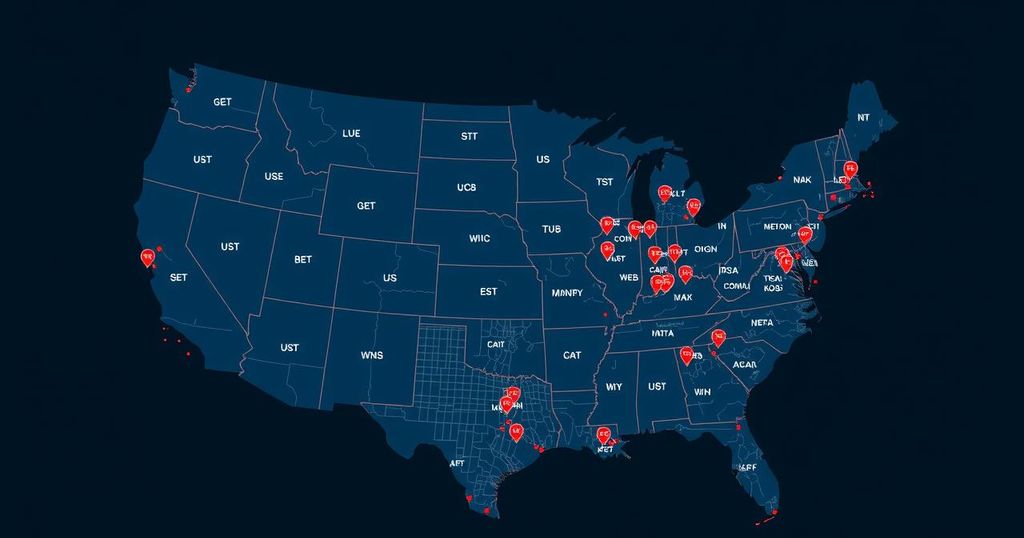Rising Foreign Interference Threatens the 2024 US Elections
Foreign attempts to disrupt US elections are intensifying, with Russia as a leading actor employing disinformation campaigns, while Iran engages in hacking operations to undermine Donald Trump. Meanwhile, China adopts a more neutral stance. The US government responds by robustly countering these threats, emphasizing electoral security and the historical context of foreign interference, which has prompted significant actions ahead of the 2024 elections.
Recent developments indicate a marked increase in foreign threats to upcoming US elections, prompting officials to act more swiftly to counteract these risks. Instances of hacking presidential candidates’ phones and the emergence of fake videos depicting vote tampering exemplify the heightened attempts by adversarial nations, including Russia, China, and Iran, to disrupt and manipulate the electoral process. In response, intelligence officials emphasize the robustness of the US election system, specifying that while no foreign power could feasibly alter the election results, their campaigns of disinformation and cyber espionage create significant challenges by undermining trust and generating division among the electorate. Notably, Russia has been identified as the most formidable threat, utilizing sophisticated disinformation systems to manipulate the discourse around contentious issues in American society. Intelligence assessments suggest that Russia is actively supporting Donald Trump’s campaign while simultaneously attempting to discredit his opponent, Kamala Harris, through extensive disinformation campaigns, including fabricated videos. Additionally, Russia’s strategy extends beyond Election Day, with implications that they may stimulate discontent and encourage protests based on purported election irregularities. Furthermore, Iran has engaged in aggressive information warfare, hacking campaign associates and leaking sensitive information to harm Trump’s chances. Charges filed against Iranian hackers illustrate this point, as does their historical opposition to his administration’s policies. In contrast, China appears to be adopting a more understated role in the ongoing electoral landscape, allegedly targeting lower-profile candidates based on US positions on issues pertinent to Beijing. In the context of past events, it is clear that foreign interference is not unprecedented; both Russia and Iran have conducted similar operations in previous elections. However, this year’s proactive stance from the US government reflects lessons learned from earlier electoral cycles, aiming to mitigate the effects of foreign meddling and reassure the public about election security.
The discussion surrounding foreign interference in US elections has gained renewed importance, especially with the increasing sophistication and audacity of such attempts from nations like Russia, Iran, and China. Historical instances of interference date back to the 2016 presidential election, where Russian tactics were notably prominent in the form of hacking and disinformation campaigns. The 2020 elections also saw similar efforts as adversaries continued to exploit vulnerabilities in the electoral process. With the 2024 election approaching, officials are keenly aware of these past events and are applying learned strategies to more transparently address and counter foreign threats to electoral integrity.
In summary, the escalation of foreign attempts to manipulate the US electoral process underscores the urgent need for vigilance and robust defensive measures. The growing involvement of nations such as Russia and Iran highlights significant challenges, particularly concerning disinformation and cyber operations aimed at sowing discord and undermining public confidence. While the US election system is fortified against direct alterations of results, the efficient exposure and countering of these foreign tactics will be vital in safeguarding democracy. As the electoral campaign progresses, the implications of these threats necessitate ongoing attention from officials and security experts alike.
Original Source: apnews.com




Post Comment